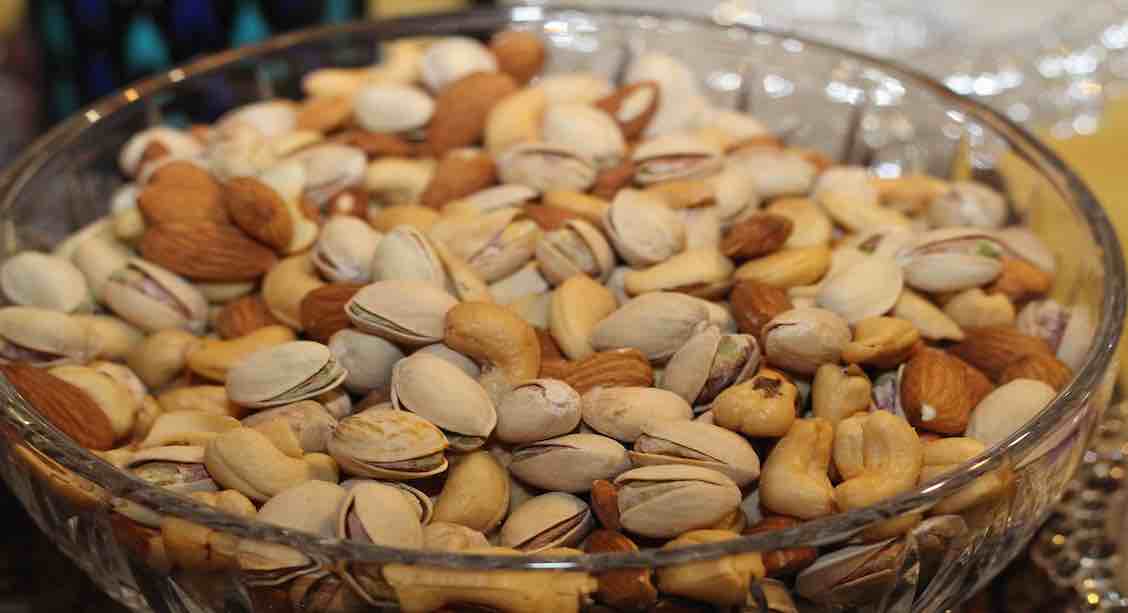
The Importance of Nuts
Nuts have been a part of almost every diet around the world for tens of thousands of years.
Despite the fact that they are so readily consumed, the true health benefits of these tasty snacks might be lost on many people. Let’s take a deeper dive into nuts and some of the health benefits.
Walnuts
While, like peanuts, these are not technically speaking “nuts”, we routinely categorize them as such. They’re one of the most consumed nuts (especially around holidays) and have a plethora of health benefits. As noted by Katherine in her article, walnuts provide numerous different vitamins that are beneficial to human health. These include copper, magnesium, vitamin B6 and B9, zinc, and more.
An experiment involving walnuts
By profiling 80 undergraduate students, researchers sought to learn more about the potential benefits of walnuts. Half the group ate walnuts and half did not. Researchers then asked subjects to report on their mental health at different time intervals. They also monitored metabolic biomarkers and sleep quality during that time. While there were some impressive results in terms of the effects that walnuts had on the academic situations of some students, more research is required to confirm the findings.
Other research about these nuts
An article in Foods showed how using pulsed light could help improve the microbiological safety of walnuts without opening their shells. And a review in Nutrients investigated the link between walnuts and reducing the likelihood of genetic diseases. In the end, they found that introducing them into a healthy diet could reduce the risk of cardiovascular disease. Because they have healthy fats, fiber, and can have positive effects on the heart, its easy to see why they’re recommended for consumption!
Peanuts
A study, published in Nutrients in July 2022, takes a closer look at this nut, which, much like the walnut, is not actually a nut! Technically speaking, it’s a legume. So, it’s far closer to beans and peas than to cashews and almonds. We took a look at the humble peanut in August 2022, and recommend you read our article.
Problem (and benefits) of these nuts (legumes)
Despite their health benefits, they’re generally considered to have a lot of calories, which limits their consumption. People worry that eating peanuts will lead to weight gain, and moderation matters here. In addition, it is the second most common food allergy, affecting 1 in 50 children and 1 in 200 adults.
Despite these points, the health benefits are many. For every 100 g of peanuts, 25 g is protein. They also have many vitamins, like B6, which improves the immune system and is good for brain development.
Research on the (pea)nut
The journal Agronomy produced a Special Issue, “Peanut: A Promising Star to Feed the Future” that features several studies about this amazing food.
In our previous article, we went over the results of a fascinating (and slightly paradoxical) experiment. Despite their higher caloric values, peanuts can help with weight loss.
Nuts and the Mediterranean diet
The Mediterranean diet is a well-known and balanced diet that generally encourages staying away from certain foods like red meats and processed foods. Plant-based foods and those with health fats (olive oil, fish, etc.) are greatly recommended for consumption, and nuts have lots of healthy fats.
What is the Mediterranean diet?
Usually consumed where there are olives and grapes, the Mediterranean diet is a well-known and balanced diet. It generally encourages (though it does not outright ban) staying away from certain foods. Red meats, processed foods, and sugar, for example, are usually discouraged in favour of plant-based foods and those with healthy fats (olive oil, fish, nuts, etc.). A benefit of the diet is that it is balanced between caloric intake and also micro- and macro-nutrients. Often, the Mediterranean diet is useful for losing weight and it is also good for cardiovascular health.
What does the science say about nuts and the Mediterranean diet?
An systematic review in the journal Antioxidants on the subject of the Mediterranean diet (and the references therein), the authors noted that melatonin shows remarkable functional versatility. It shows antioxidant, oncostatic, antiaging, and immunomodulatory effects. Because melatonin is a free radical scavenger, it directly scavenges reactive oxygen species and nitrogen-based species more efficiently than vitamin E. It also induces the activity of antioxidant enzymes, such as glutathione reductase and peroxidase.
In short, nuts have some healthy fats to contribute, but can also have a myriad of health benefits as well. Its no wonder the diet is so heavily recommended by so many people.
Almonds
Nat Kelly’s article on almonds is a fascinating deep dive in this (actual) nut. Almonds are a high-protein food with many health-promoting properties. As he notes, they contain vitamins and minerals that are essential to the normal functioning of the human body.
They’re rich in vitamin E, B9, magnesium and calcium. And, briefly, they can help with many facets such as helping to balance out anxiety and depression, blood pressure, anemia, and may have aging-related benefits. For more details, check out the article.
Issues with sustainability
Because of the production chain, almonds generally have a negative impact on the environment. They require specific growing conditions. California is the main growing location, accounting for 80% of the market, but this means that exports drive greenhouse gas emissions. These nuts are delicious and healthy, but cause damages because of their carbon footprint.
Snacking on nuts boosts young adult health
An article in Nutrients explores the relationship between consuming tree nuts and metabolic syndrome risk. Tree nuts include almonds, Brazil nuts, cashews, pecan, and more. Metabolic syndrome refers to a group of health problems that put you at risk of type 2 diabetes or conditions that affect your heart or blood vessels.
The researchers thought that snacking on nuts would reduce metabolic syndrome risk in young adults. The experiment was performed over 16 weeks with 84 adults.
Snacking on tree nuts improved diet quality by increasing the ratio of unsaturated to saturated fat intake and reducing total sugars intake. Overall, the study suggests that daily tree nut consumption reduces metabolic syndrome risk. It does so by potentially reducing waist circumference, lipid biomarkers, and insulin sensitivity, all without requiring a reduction in calories.
Research on nuts
Because this subject is an ever-expanding area of research, expect this article to be updated accordingly. We’ll be adding more interesting articles as we write them.
Submit your paper to MDPI
Do you have interesting research on nuts that you want to share with the world? Manuscripts should be submitted online at susy.mdpi.com. To submit your manuscript, register and log in to the submission website. Once you have registered, click here to go to the submission form for the journal you want to apply to. All co-authors can also see the manuscript details in the submission system. To do so, they must register and log in using the e-mail address provided during manuscript submission.











Molto interessante